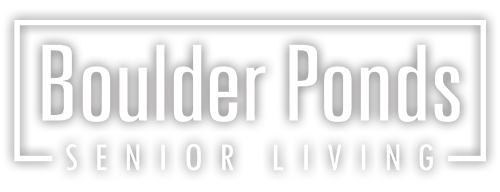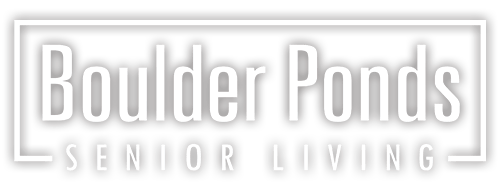When you’re searching for the proper care for your loved one living with memory loss, understanding different types of senior living can feel overwhelming. Questions about memory care versus skilled nursing often arise as families navigate this important decision.
Memory care is not considered skilled nursing–these are two distinct types of care that serve different purposes and provide various levels of support for your family member. While both offer specialized services, they address unique needs and provide different approaches to daily care.
Key Takeaways
- Memory care and skilled nursing serve different purposes with distinct approaches to senior care.
- Memory care focuses on cognitive support for individuals with dementia and Alzheimer’s disease.
- Skilled nursing provides intensive medical care for recovery and management of chronic health conditions.
- Some communities offer both services under one roof for continuity of care.
- Your loved one’s individual needs determine which option provides appropriate support.
What Is the Difference Between Memory Care and Skilled Nursing?
Memory care focuses specifically on supporting individuals with Alzheimer’s disease, dementia, and other memory-related conditions. This type of care emphasizes cognitive support, routine maintenance, and creating a secure environment where your loved one can thrive despite memory challenges.
Skilled nursing, on the other hand, provides intensive medical care for individuals recovering from surgery, managing chronic health conditions, or requiring 24/7 clinical supervision. This care type centers on medical treatment and rehabilitation rather than cognitive support.
The key difference lies in the primary focus: memory care addresses cognitive and daily living needs, while skilled nursing addresses medical and rehabilitation needs. Your loved one may benefit from one or both types of care depending on their individual circumstances.

What Does Memory Care Offer Your Loved One?
Specialized Support for Cognitive Challenges
Memory care communities design their entire approach around supporting individuals with memory loss. Staff members receive specialized training to understand how dementia and Alzheimer’s affect daily life and behavior.
Your loved one receives personalized care plans that work in harmony with their cognitive abilities, rather than against them. Activities and interactions focus on maintaining existing skills while providing gentle guidance for tasks that have become challenging.
Daily Living Assistance with Compassionate Care
Support with daily activities, such as bathing, dressing, and medication management, is provided in a manner that preserves dignity and promotes independence. Caregivers understand how to approach these tasks with patience and understanding.
Meal times, social activities, and personal care routines follow consistent schedules that help reduce confusion and anxiety. This structured approach creates comfort and familiarity for your family member.
Safe Environment Designed for Memory Loss
Memory care communities offer secure environments that prevent wandering while still providing a home-like atmosphere. Design elements include visual cues, clear pathways, and familiar spaces that support navigation and reduce confusion.
Safety measures integrate seamlessly into the living environment without feeling restrictive or institutional. Your loved one can move freely within the community while staying protected from potential dangers.
How Does Skilled Nursing Serve Different Needs?
Medical-Focused Care and Rehabilitation
Skilled nursing offers intensive medical care that exceeds the capabilities of assisted living or memory care. Licensed nurses and medical professionals oversee complex medical treatments and medication management.
Physical therapy, occupational therapy, and speech therapy services help individuals recover from injuries or manage chronic conditions. This medical focus addresses specific health challenges that require professional clinical oversight.
24/7 Clinical Supervision and Treatment
Round-the-clock medical supervision means your loved one receives immediate attention for any health concerns that may arise. Registered nurses and healthcare professionals monitor vital signs, manage medical equipment, and provide clinical assessments.
Complex medical conditions, such as wound care, IV therapy, or post-surgical recovery, receive appropriate attention from qualified medical staff.
Recovery Support After Hospital Stays
Many individuals need skilled nursing care temporarily after hospital discharge or medical procedures. This transitional care helps bridge the gap between hospital treatment and returning home or moving to a lower level of care.
How Can I Choose the Right Care for My Family Member?
Signs Your Loved One May Need Memory Care
Memory-related challenges that interfere with daily safety and independence often indicate that memory care support would be beneficial. These might include getting lost in familiar places, forgetting to take medications, or experiencing confusion about time and place.
Personality changes, increased anxiety or agitation, and difficulty completing familiar tasks can also suggest that specialized memory care would provide appropriate support. A professional assessment can help determine the proper level of care needed.
When Skilled Nursing Becomes Necessary
Complex medical needs that require professional nursing care may indicate that skilled nursing is appropriate. These situations include wound management, medication administration that requires clinical oversight, or recovery from surgery or serious illness.
Chronic conditions like diabetes management requiring frequent monitoring, breathing treatments, or mobility challenges following a stroke may also necessitate skilled nursing care.
Finding Support at Boulder Ponds Memory Care Communities
How We Help Families Navigate Care Decisions
At Boulder Ponds Senior Living, we understand that determining the correct type of care for your loved one requires careful consideration of their individual needs. Our team can help you understand the differences between memory care and skilled nursing, enabling you to make informed decisions.
We work with families to assess current needs while planning for potential future care requirements. This comprehensive approach helps you understand all your options and feel confident about the care choices you make.
Schedule Your Personal Tour Today
Seeing our memory care community firsthand helps you understand how we support individuals with memory loss in a warm, homelike environment. During your visit, you can ask questions about our approach to care and see how we create meaningful daily experiences.
Contact us today to schedule your personal tour and learn more about how our memory care services might support your family member. We’re here to help you navigate this important decision with compassion and understanding.



